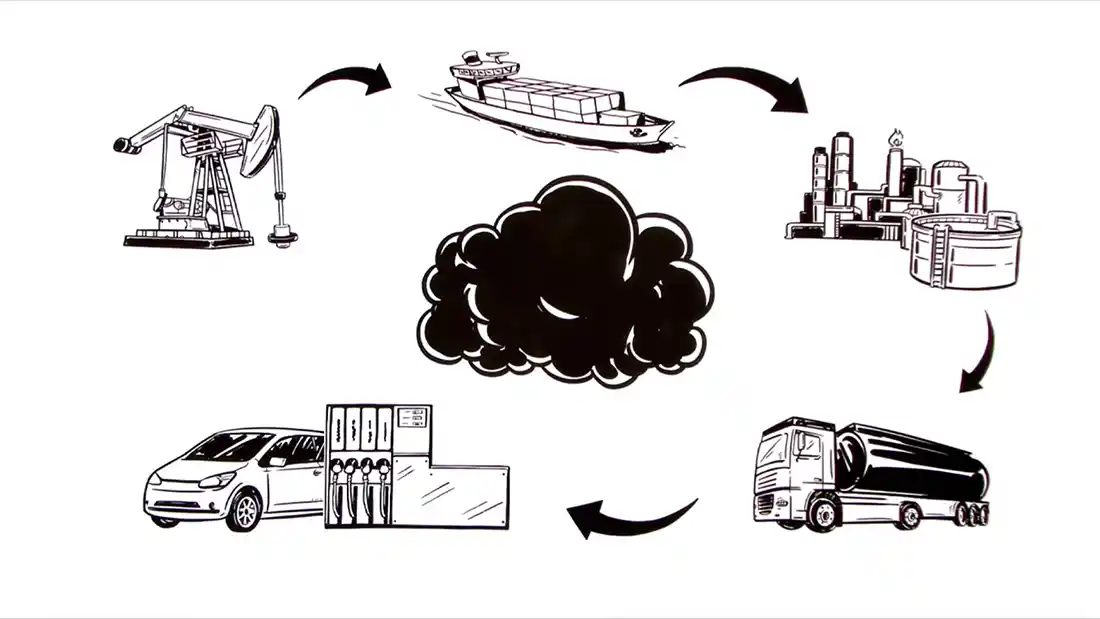

Carbon Footprint, recycling, offset, plant trees, carbon, greenhouse gases, decrease, temperature, reuse, plastic road, CDs, energy efficient, shop local, second-hand.
We all know that we need to decrease our carbon footprint, but what actually is a carbon footprint?
A carbon footprint is the amount of carbon we use in daily life, with anything we do - when we turn the kettle on to make a cup of tea, or heat our homes with central heating, or when we go for a drive to work and back during the day. Anything that uses energy of some sort creates a carbon footprint.
These measures are increasing daily, with the use of everyday materials being commonplace - at least 2 cars on average per family, going to work and back daily; everyone has a digital device like a laptop, computer, mobile phone or tablet; washing machines are used daily; kettles boiled. The list is endless.
But, is there anything that can be done to prevent any more of this?
This is what happens with larger companies that are able to do so, and is a process whereby they plant loads of trees to counter the actions their companies do. If, for instance, Amazon delivers your parcel that you ordered yesterday. This involves packaging the parcel in a box, sending it out by one of their couriers, and delivering it to you.
To offset this, they plant 4 trees. This is enough to counter-balance the amount of carbon it has taken to deliver that parcel. Given that Amazon deliver millions of parcels daily around the globe, imagine the numbers: 1 million (1,000,000) multiplied by 4, would equate to 4 million trees being planted daily to offset their carbon footprint.
Please be aware, this is just an example, as I don't actually know if they do this, or how many trees they plant if they do it.
Public transport: well, if you use a car for daily use to work and back, and there's a public transport option like a bus or train, you can switch to using that unless you need to use your car for work purposes during the day.
If you eat a lot of meat, this accounts for almost 15% of manmade greenhouse gases, so moving to a diet that is based on fruits, vegetables, grains and beans will help lower carbon outputs.
Choose local: this is a big must. We get foods from all over the world, but what if we just buy locally. Local greengrocers, butchers (if you have to eat meat), bakers and other shops that provide local resources and food will decrease your carbon footprint to a more acceptable output.
The following still is from a video on carbon footprints, with the following details:
Please click on the image to view the video.


Food production amounts to 83% of carbon emission each year. This is either because it is transported to and from places all over the world, or because animals release methane and other gases into the atmosphere.
Composting: this is beneficial to you and your garden. You will eventually have some nutrient-rich soil that you can place on your garden and help your plants grow more effectively, increasing the oxygen output from them, and also reducing the amount of carbon.
Other examples include washing your clothes at a lower temperature, use energy efficient lightbulbs and appliances, use a computer that is energy efficient, don't buy new clothes, instead repair them, or buy from second-hand shops if possible. There are many things you can do that will reduce your carbon footprint.
This is a good way to lower your carbon footprint - recycling. Use plastics that are made from recycled plastics, instead of using virgin plastic made from oils. When a bottle is made from recycled plastic, you are cutting down the amount of carbon used, as it takes a lot to mine for the oil, and make the plastic from the crude materials from this..
Another way to recycle is to use plastics in other materials. CDs, which were once king of the planet for music devices, are used less and less these days, and there is now an excess amount of them that could be used elsewhere. There are companies that can recycle these CDs (and other plastics) to make roads with. A company called ![]() MacRebur in the UK uses these plastics to make a cheaper road surface than the commonly used asphalt.
MacRebur in the UK uses these plastics to make a cheaper road surface than the commonly used asphalt.
If you are unable to see the board, please click here.
Disclaimer | About Me | Sitemap
Website design by SyntaxHTML.



Blue icons adapted from icons courtesy of Smashicons.com